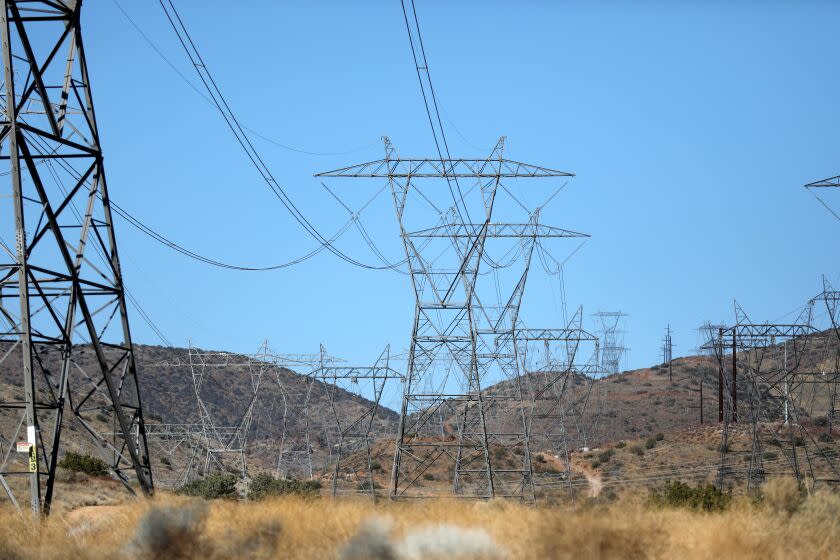Letters to the Editor: Our clean-energy future should come from local solar, not long transmission lines

To the editor: I appreciate the article on the need for more power lines to transmit clean energy. There are so many things to consider in transitioning to cleaner sources of energy.
It seems to me that the discussion on making this transition mostly focuses on how we can keep what we have now and just substitute out older, dirtier energy sources for newer, cleaner ones. It is assumed that we need a bigger and better grid in order to transmit renewable energy from gigantic wind and solar farms, which also have a negative environmental impact.
What if we consider going smaller and more local?
I have seen solar panels constructed over parking lots to supply energy to nearby buildings. Southern California is covered with parking lots that could become mini solar farms, providing shade for cars and energy for buildings.
If we used this method extensively, we might still need to expand the grid but perhaps less so. We might also be less susceptible to huge blackouts.
Tom McGee, Oxnard
..
To the editor: Kudos to The Times and reporter Sammy Roth for alerting readers that most of the potential cuts in carbon emissions made possible by the Inflation Reduction Act could be lost if we fail to build out the electrical grid.
That build-out requires streamlining the permitting process. The four years required to simply get a permit to build the needed power lines would defeat President Biden’s goal of cutting emissions 50% by 2030.
Bureaucratic inertia, NIMBY-ism and regulatory barriers (like some California Environmental Quality Act provisions) could largely gut the Inflation Reduction Act's anticipated climate benefits. Arguably the most significant global warming legislation in the world would thereby be derailed.
Without permitting reform, our recent extreme weather calamities may seem benign by the time my grandchildren reach adulthood.
Tom Osborne, Laguna Beach
..
To the editor: Getting serious about transitioning to clean energy means de-prioritizing big-money interests. Policies need to reflect our climate goals.
Recently, the California Public Utilities Commission allowed private utilities to monetarily penalize residential rooftop solar customers in its update of net-metering rules.
On-site residential energy generation with on-site storage reduces the need for long transmission lines and conserves energy that might be wasted along the way. But that might weaken the power of private utilities.
California is supposed to lead the transition to the next generation of energy, not protect the last one.
Pam Brennan, Newport Beach
This story originally appeared in Los Angeles Times.

